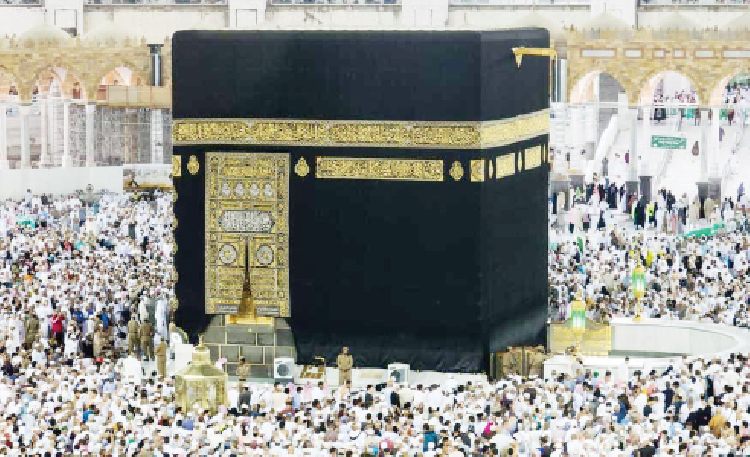The fasting of six days in the month following Ramadan (in the Islamic Calendar), i.e. Shawwal, is popularly known as sittu shawwal. According to the Prophet, the fast is equal to the fast of a whole year in reward. Abu Ayyub al-Ansari (Allah be pleased with him) reported Allah’s Messenger (peace and blessings of Allah be upon him) as saying: ‘Whoever fasts Ramadan and then follows it up with the fast of six days in Shawwal will have the reward of one who fasts for a whole year.’ (Sahih Muslim, Book 6, Hadeeth 2614). This means it would be as if such a person had fasted perpetually.
Sittu Shawwal could be done severally, at random or consecutively. It is better to observe it immediately after Ramadan, say, a day after Eid. Of course, fasting on Sallah Day is forbidden. So, one could start a day or two after the festivities of Eid. I trust that by this time, many people reading this column will have started their sittu shawwal or are about to begin a day or two from now. The month of Shawwal is still young; today is Friday, Shawwal 3, 1445 AH. Start tomorrow; in a few days, you are done.
This Sunnah of fasting in Shawwal is highly recommended on the authority of the authentic Hadeeth quoted above. I’m aware of the opinion of some honoured scholars who discourage people from observing the fast because they fear the ignorant may wrongly assume that Sittu Shawwal is part of Ramadan. Allah will recompense such scholars for their efforts in preserving the teachings of the religion. But we will not place the opinion of any mortal over that of the Prophet; sallallaahu alayhi wa sallam. “So take what the Messenger gives you, and refrain from what he prohibits you.” (Al-Hashr, 59:7)
For people who missed days of fasting in Ramadan, it is the make-up of such days first before observing sittu shawwal. The one is obligatory (Fard), and the other is supererogatory (Sunnah). A debtor should try to settle his debt before offering gifts to people. If you’ve missed some days in Ramadan due to travel, illness or monthly course, start by making up the days missed, and then embark upon the Sunnah fast of Shawwal. Allah will see your intention and reward you accordingly if, by the time you finish the repayment of the Ramadan fast, there’s not enough time for the Shawwal fast.
Making up for missed days could be done according to one’s convenience. It’s not mandatory to fast such days consecutively. Aisha (may Allah be pleased with her), for example, used to make up her missed days in Sha’baan (the last month before Ramadan of the following year). So, it’s according to one’s convenience, not consecutively. The Qur’an says: ‘(Fasting) for a fixed number of days; but if any of you is ill, or on a journey, the prescribed number (should be made up) from days later.’ (Al-Baqarah, 2:184). Therefore, whoever breaks fast during Ramadan due to menstrual blood, illness, or travel should make up the exact days missed consecutively or severally after Ramadan.
If you delay the repayment of such a fast until another Ramadan, you will fast the current Ramadan and resume your repayment afterwards. The late resumption, for example, one year’s delay in making up for missed days, will not attract feeding the indigent (Fidyah) whether there was genuine or otherwise reason for the delay. This is the Hanafi position, as well as Imam Hasan al-Basree. Imams Malik, Ash-Sahaafi’ee, Ahmad and Ishaaq concurred that such delay will not attract Fidyah if the reason is genuine. They differed, however, with Hanafi, where there was no good reason for the delay in repayment. To them, whoever breaks fast in Ramadan and delays repayment until another Ramadan should fast the current Ramadan and then make up for missed days, plus feed the needy (Fidyah) daily in proportion to the number of days missed.
Making up for missed days as soon as possible is better because death can strike at any time. Now, if that happens, can one’s heirs or relatives fast on their behalf?
There are varied opinions among Muslim scholars in the case of a person who misses days in Ramadan if he can make up but does not and then dies without repaying such fast. The majority of the scholars say somebody among his heirs or relatives should not fast on his behalf, but they shall feed the indigent daily for the number of days missed.
The preferred position among the Shafi’ee School is for such an heir or relative to fast on behalf of the deceased, and, in which case, there’s no need to feed the needy. “Whoever dies without repaying his fast, his relatives should fast for him.” (Hadeeth)
On the authority of Ibn Abbaas, may Allah be pleased with him, that a man came to the Messenger of Allah, peace and blessings of Allah be upon him, and said: ‘O Allah’s Messenger! My mother died without repaying the fast of a complete month; shall I fast on her behalf?’ The Prophet, peace and blessings of Allah be upon him, answered and said unto him: ‘If your mother had left an unpaid debt, would you have settled it on her behalf?’ ‘Yes’, the man answered. ‘Then’, the Prophet continued, ‘Allah’s debt is more worthy of repayment.’





